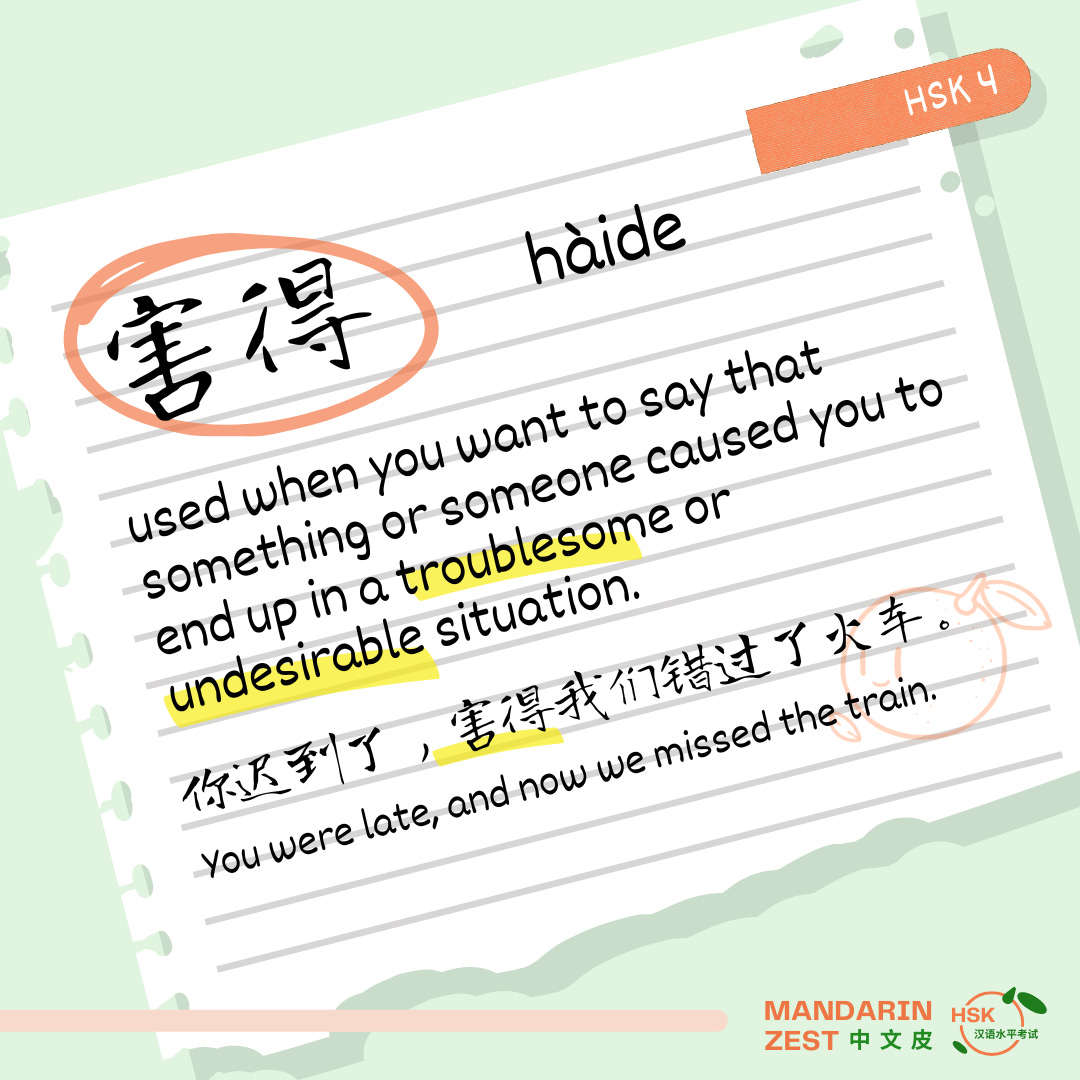In everyday spoken Chinese, 害得 (hàide) is used when you want to say that something or someone caused you to end up in a troublesome or undesirable situation. There's often a slight sense of blaming or frustration behind it.
To use this phrase, start by explaining what caused the issue, then follow it with 害得 (hàide) and the negative outcome. You can leave out the 得 if you want.
It’s important to remember that 害得 doesn’t have a perfect English equivalent. It’s more about expressing that someone or something caused an inconvenience or problem for you. Words like "make," "force," or "prevent" are sometimes used to get this feeling across.
Sample Sentences
你迟到了,害(得)我们错过了火车。You were late, and now we missed the train.
天气预报错了,害(得)我没带伞,结果淋湿了。The weather forecast was wrong, so I didn’t bring an umbrella and ended up getting soaked.
网络太慢,害(得)我们没办法按时提交报告。The internet was so slow that we couldn't submit the report on time.
In a Text
最近的天气真是糟糕,害得我每天都感冒。前几天,我打算和朋友一起去郊游,可是早上突然下起了大雨,害得我们只能取消计划。本来以为在家可以好好休息,结果邻居家开始装修,害得我一整天都没法安静地工作。还有一次,我赶着去见客户,结果出租车司机迷路了,害得我迟到了半个小时。真是各种小麻烦接连不断,害得我心情一直不好。
郊游 (jiāoyóu): outing; picnic; a trip to the countryside or outskirts for leisure and recreation
The weather has been terrible lately, and it’s caused me to catch a cold every day. A few days ago, I planned to go on an outing with some friends, but it suddenly started raining in the morning, so we had to cancel our plans. I thought I could rest at home, but my neighbor started renovating their house, making it impossible for me to work in peace all day. Another time, I was rushing to meet a client, but the taxi driver got lost, so I ended up being half an hour late. It seems like one small problem after another, and it's really been putting me in a bad mood.





